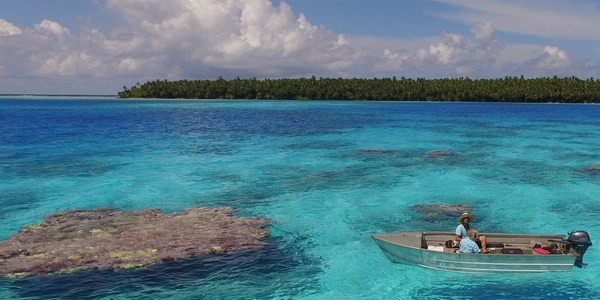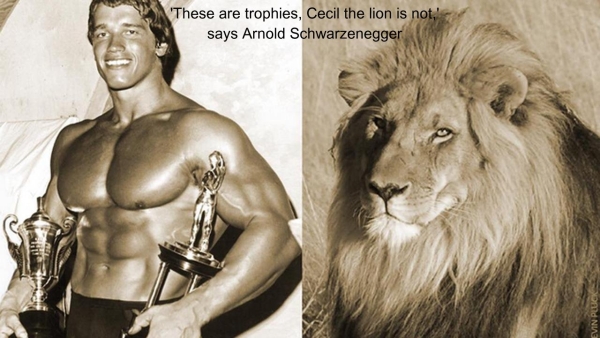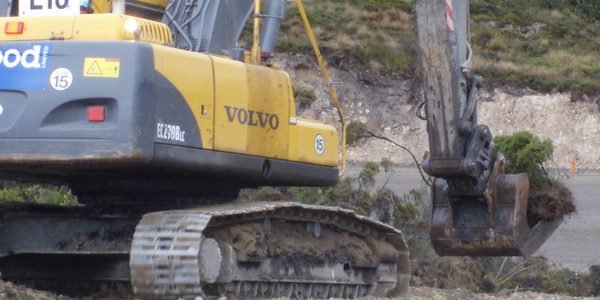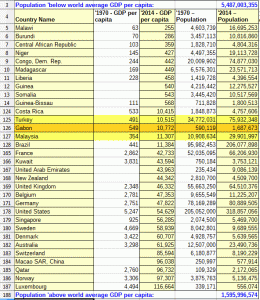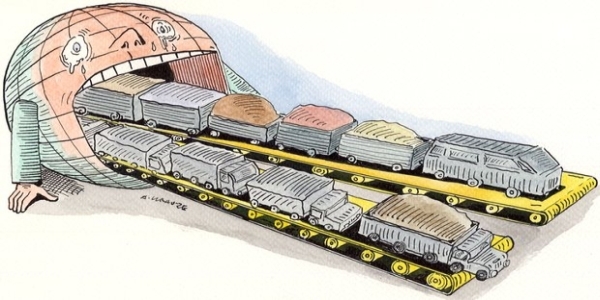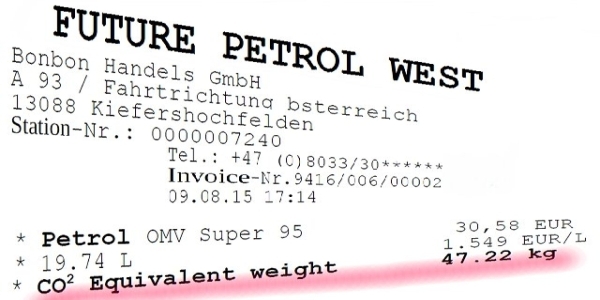Fictitious petrol receipt - illustration: Janos Borbely
Motto 1: There’s no news like bad news.
[Tomorrow Never Dies (1997), Elliot Carver]
As COP21 in Paris is approaching, bad news started to appear. Bad?! – Horrific!
The window of opportunity for human beings to set the trajectory of the global surface mean temperature increase to a less devastating course is closing rapidly. And by unfathomable will of destiny in these days terrorist attacks at the very same place of COP21 led to banning of public marches, including those which had been prepared since months by some many civil activists and conservation organizations.
Reading the comments on these publications it is impossible not to recognize how divided, confused, and bitter the commenters are. Perhaps the only one common denominator among them is the waiting for the miracle. The miracle that one or another party on COP21 will be able to pull a rabbit out of a hat, and our planet together with us will be saved from the devastating effects of Climate Change. But it won’t happen.
Motto 2: The key to a great story is not who, or what, or when…but why.
[Tomorrow Never Dies (1997), Elliot Carver]
Why it won’t happen?
Like in a Greek drama, the causes are many and they can amplify each others’ effect.
Governments (most of them) follow the rules dictated by the financial world (financial world: nickname of Game Changers). The financial world is set to grow. If tomorrow stock markets learned that global consumption fell by 6.6% each year during the next 15 years period, there would be a global financial collapse. It must not happen! Let’s rather bravely face with the Climate Change!
Governments are elected to bring prosperity and growth for each of us. That is why they don’t even want to hear about reducing consumption. Geoengineering is much more easy approach. It is true, that it takes a while to invent all those new technologies which possibly could bring us some expected outcome. By the time these experiments will be successfully or unsuccessfully completed, members of the recent governments will spend their retirement in their small bungalow by writing their memoirs.
The said truth is that in order to avoid worst case scenario and keep the global mean temperature increase below 2 Celsius (with acceptable probability), our global society must decrease GHG emission by 6.6% on average every year to reduce it to (nearly) zero within the next 15 years. Due to the fact, that whatever we consume (beef, chicken, bottled water, etc) costs energy to produce and to transport, and wast majority of energy production is still based on fossil fuel, the only way to reach the goal is to reduce consumption.
What is the first step and the secret to reduce something effectively? The secret is to measure it. Our CO2 emission must be measured through measuring our consumption. It is not a rocket science. There are huge number of various tools available already providing ways for offsetting CO2 emission. Airlines, NGOs offer online tools to calculate our CO2 emission when we fly, drive, travel by train, or purchase a T-shirt.

T-Shirt CO2 Emission Labeling from Switcher
But, it is not enough to measure only, it needs to be added to our individual CO2 account to make it visible – every day. This is really a bad news. Just like how bad is it for a smoker to see the effect of smoking on the box. Measuring and accounting or CO2 emission is not a guarantee for lowering our consumption. It is just an indispensable step towards to goal.
Without making individual contribution to the global CO2 emission visible, there will be no success. Governments are just to busy with securing our well-being to invent such ideas. However, they can be pushed to help us to make the infrastructure available for everybody to measure and account individual CO2 emission. The know how and the technology is available to make it happen, it is the question of will only.

Loading ...
There are some who rightly point to the fact that by eating (much) less meat, especially beef and pork, it is also possible to save huge amount of CO2 emission and sewage production.
By pushing our government to make CO2 accounting infrastructure available everywhere and by eating much less meat we can individually contribute to GHG emission reduction targets.
If you like the idea of CO2 accounting, please vote on the poll above and share this content with everybody in your network. If you don’t like the idea of CO2 accounting, please propose another way with which we can monitor and lower our consumption effectively.


